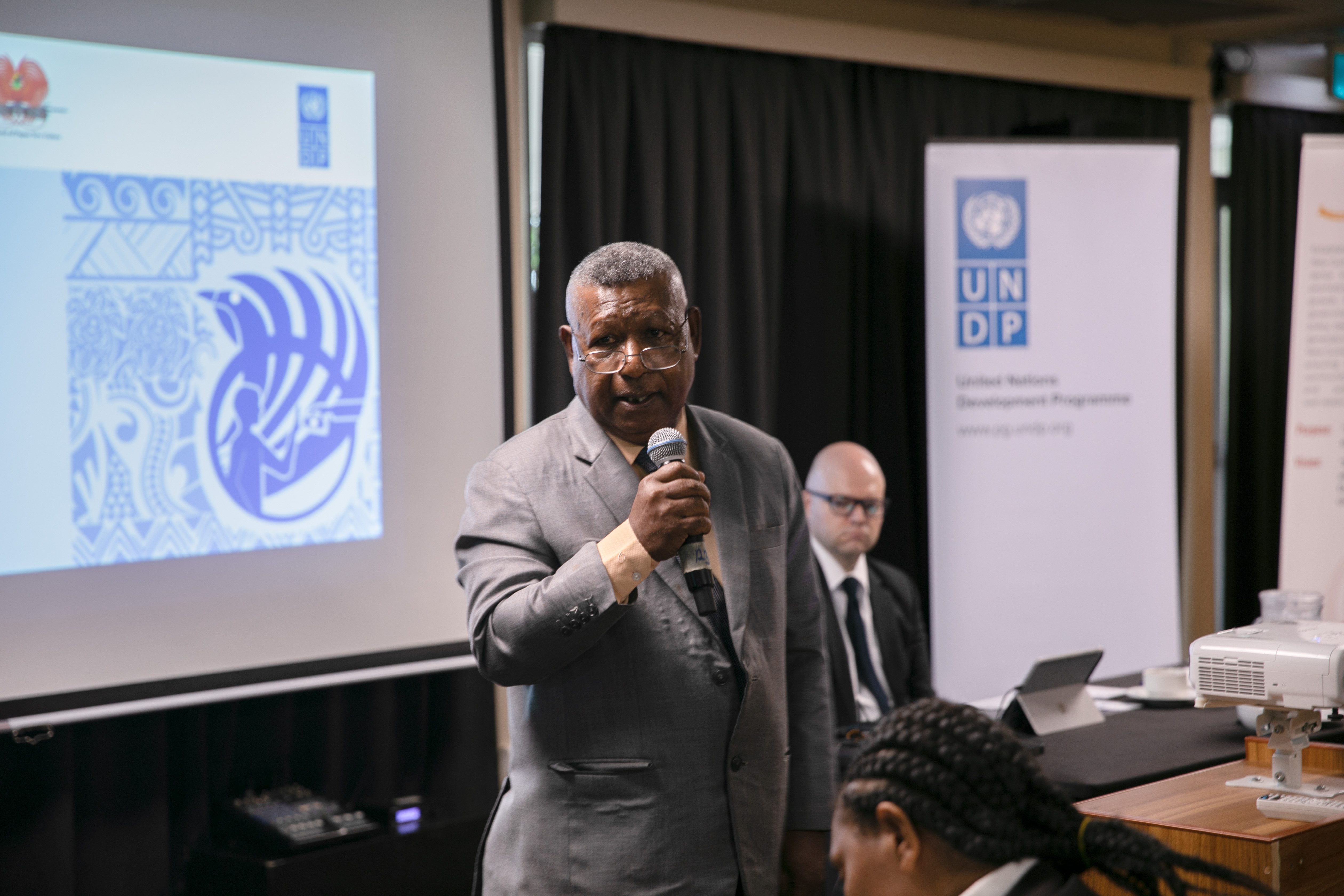Detecting corruption and increasing accountability in enterprises requires a strong whistleblower protection system that enables employees in the private sector to report corruption.
UNDP supports an effective whistleblower protection system
October 28, 2022

Chairman of the Papua New Guinea Interim Independent Commission Against Corruption, Mr Thomas Eluh.
The United Nations Development Programme under the European Union-funded Preventing and Countering Corruption in Papua New Guinea Project (PNG Anti-Corruption Project) worked jointly with the National Government’s Department of Justice and Attorney General and the Business Council of Papua New Guinea to deliver a workshop on whistleblower protection in the private sector in Port Moresby on Thursday, 6 October 2022. Delivered by UNDP, the workshop was one of a series of three workshops and trainings related to the implementation of the Whistleblower Act 2020.
The workshop was attended by, among others, representatives of the private sector, Government of Papua New Guinea, the Business Council of Papua New Guinea, the Chamber of Commerce, Transparency International. Of particular focus was the Whistleblower Act 2020 and the model draft Whistleblower protection policy developed by UNDP as part of the PNG Anti-Corruption Project.
“The fight against corruption is not straightforward. It is a challenging task. This workshop is crucial in highlighting why whistleblowing is a powerful instrument to expose corruption in the workplace, both in the private and public sectors,” said Thomas Eluh, Chairman of the Papua New Guinea Interim Independent Commission Against Corruption.
The Papua New Guinea Whistleblower Act was passed in 2020. However, its implementation has not started yet. UNDP provides support to the key partners in developing regulations, guidelines, and policies to implement the new Act and to build the capacity of those responsible for its implementation.
“Addressing corruption in this country is crucial. Corruption not only impacts citizens and communities, but also businesses, and the whole country. Corruption is one of the key issues to address to create a conducive business and investment climate in order to leverage both domestic and foreign investments,’’ said Dr. Hans Lambrecht, First Secretary and Head of Cooperation of the European Union Delegation to Papua New Guinea.
The three-day training session on whistleblower protection for public officials started on Monday, 3 October and finished on Friday 7 October with the internal consultations on the implementation of the Whistleblower Act 2020 and on the associated draft regulations with key Government departments.
“Corruption is a major issue in any country. It erodes basic services. This training gives participants the chance to gain a thorough knowledge and understanding of international standards and best practice related to whistleblower protections, frameworks and ways to report for the private sector,’’ said Edward Vrkic, UNDP Deputy Resident Representative.
The PNG Anti-Corruption Project is generously funded by the European Union and implemented by jointly by UNDP Papua New Guinea and UNODC. It aims to strengthen the Government’s commitment and capacities to address corruption for the benefit of all Papua New Guineans.
“The fight against corruption is not straightforward. It is a challenging task. This workshop is crucial in highlighting why whistleblowing is a powerful instrument to expose corruption in the workplace, both in the private and public sectors,”Thomas Eluh

 Locations
Locations



